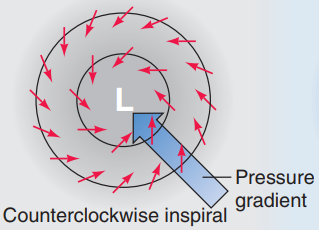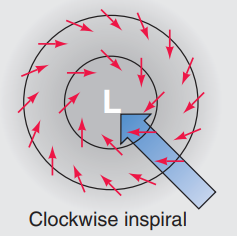-
Q. The Coriolis force plays a fundamental role in determining not just the formation but also the behavior and characteristics of tropical cyclones. Discuss (250 words)
11 Nov, 2024 GS Paper 1 GeographyApproach
- Introduce the answer by defining Coriolis Force
- Give Role of Coriolis Force in Determining Behavior and Characteristics of Tropical Cyclones
- Conclude suitably.
Introduction
The Coriolis force is an apparent force that arises from the Earth's rotation, causing moving objects, such as air or water currents, to be deflected to the right in the northern hemisphere and to the left in the southern hemisphere.
- It is crucial in shaping large-scale atmospheric and oceanic circulation patterns, influencing the movement of weather systems like tropical cyclones.
Body
Role of Coriolis Force in Determining Behavior and Characteristics of Tropical Cyclones:
- Role in Cyclone Formation:
- Initiation of Rotation: The Coriolis force provides the necessary spin for cyclones to form.
- Without it, converging winds around low-pressure areas would simply flow straight toward the center, inhibiting the development of a rotating storm system.
- For instance, tropical cyclones do not form near the equator (within 5° latitude), where the Coriolis force is negligible, because there is insufficient spin to initiate cyclone formation.
- Initiation of Rotation: The Coriolis force provides the necessary spin for cyclones to form.
- Cyclone Structure and Rotation
- Deflection of Winds: The Coriolis effect deflects the winds around the low-pressure center, creating a counterclockwise rotation in the Northern Hemisphere and a clockwise rotation in the Southern Hemisphere.


- Impact on Cyclone Intensity and Wind Speed
- Wind Circulation Speed: Coriolis force aids in maintaining high wind speeds by sustaining the rotational flow around the cyclone’s center.
- Influence on Energy Balance: The Coriolis effect helps balance centripetal forces, which allows the system to efficiently draw energy from warm ocean waters, intensifying the cyclone.
- Influence on Cyclone Dissipation:
- Extratropical Transition: As cyclones move towards higher latitudes, the Coriolis force increases, which often results in structural changes as cyclones transition into extratropical systems.
- This process causes cyclones to dissipate or lose their typical tropical characteristics.
- Extratropical Transition: As cyclones move towards higher latitudes, the Coriolis force increases, which often results in structural changes as cyclones transition into extratropical systems.
Conclusion
The Coriolis force is crucial to the formation, behavior, and trajectory of tropical cyclones, influencing them from inception to dissipation. By initiating rotation, steering paths, and affecting wind dynamics, it shapes the lifecycle and characteristics of these powerful storms.
To get PDF version, Please click on "Print PDF" button.
Print PDF




